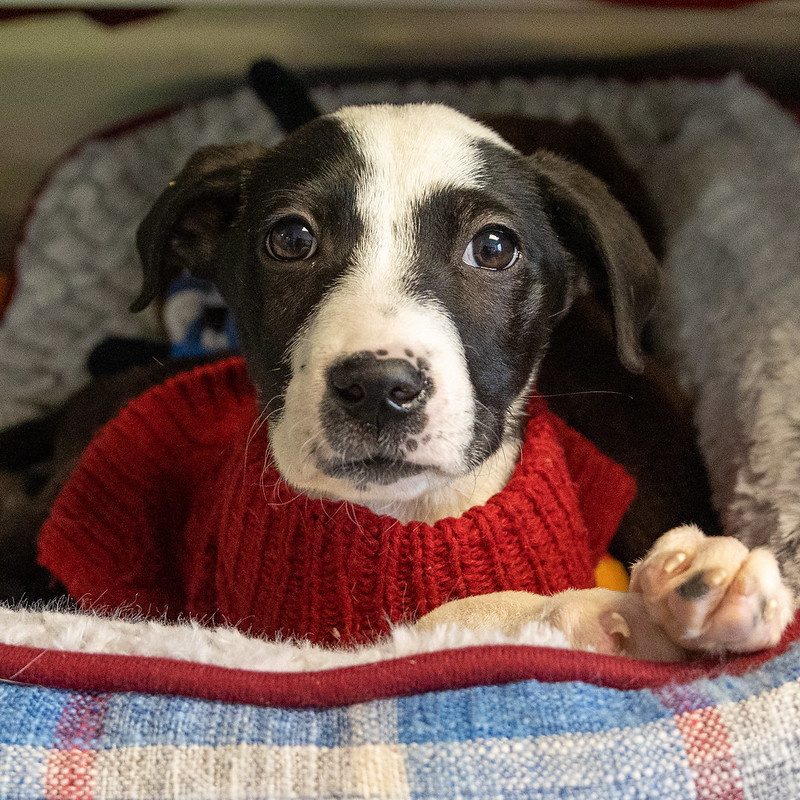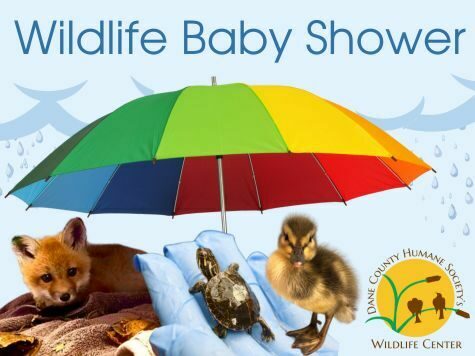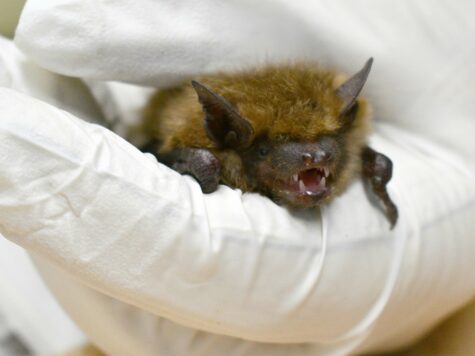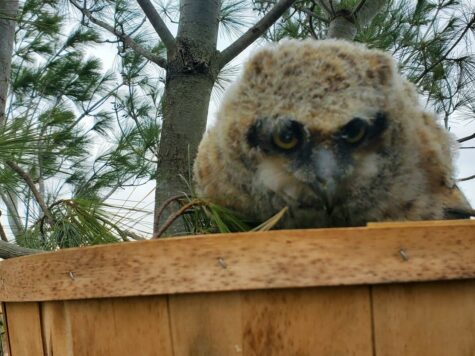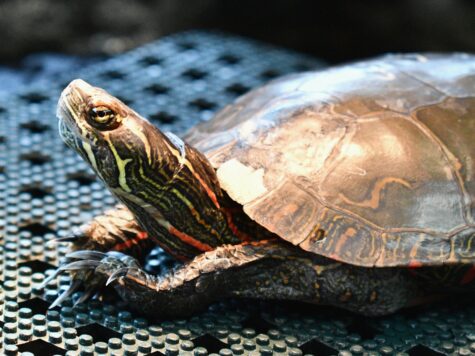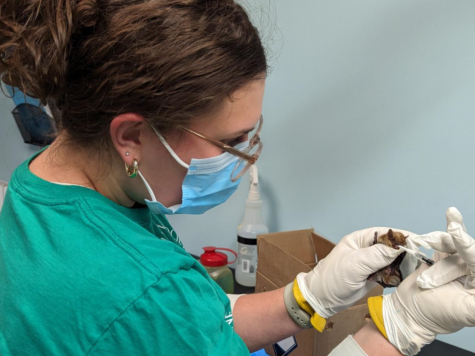The Dangers of Infectious Diseases
It was the night before New Year’s Eve. Dane County Humane Society (DCHS) had received one of our regularly-scheduled lifesaving transports from an overcrowded shelter in the South the previous Tuesday. Our veterinarians had examined each pup on the transfer as they were brought into the shelter, and each one appeared healthy. But by Thursday, some of the puppies had developed worrying symptoms that caught our staff’s attention.
One of the puppies was Chase, a sweet little Labrador retriever mix. Staff noticed he was very quiet and not eating well – behavior quite out of the ordinary for young and boisterous puppies. Veterinary staff ran quick diagnostics and received an alarming result: Chase tested positive for parvo.
Parvo, short for canine parvovirus, is a highly contagious virus that infects dogs and attacks white blood cells. It affects the gastrointestinal (GI) tract, causing profuse diarrhea, vomiting, and lack of appetite, and also harms the immune system.
“This combination is deadly because between the vomiting and the diarrhea, the puppies can become severely dehydrated,” explains Uri Donnett, DCHS’s Chief Shelter Veterinarian. “They can also get systemic infections, and because their immune system is affected, they are not able to fight those off.”
Parvo has no cure. Instead, dogs and puppies afflicted with it receive supportive care for the harmful symptoms caused by the virus. And in a shelter environment, there’s an added complication: how do we keep other animals from contracting this same highly-contagious disease?
“Dogs get this virus from other dogs or puppies that have it through eating things with the virus on it,” says Uri. “The virus can live for a long time in the environment, so they could pick it up from a yard or park if another dog was sick and was there.”
DCHS has strict quarantine and personal protective equipment (PPE) guidelines for infectious diseases. Chase was immediately quarantined along with any other puppies showing clinical signs, and DCHS veterinary staff performed a risk assessment for all the dogs and puppies on his transfer. While interacting with the dogs, staff were required to wear body suits, booties, and gloves, and they had to clean and disinfect everything that came into contact with the affected animals.
Parvo isn’t the only infectious disease of concern. Another deadly disease that can harm dogs and move swiftly through shelter environments is distemper. This disease is caused by the Canine Distemper Virus, and it can be fatal. It can cause symptoms like respiratory infections, fever, pneumonia, vomiting, diarrhea, and eye inflammation. It can sometimes even progress to neurological issues, like tics and seizures, and these problems can last for the rest of the dog’s life. Distemper also affects a dog’s immune system, making them more susceptible to other infectious diseases.
At the first sign of these or any other infectious diseases, it’s critical that shelter staff take immediate steps to quarantine affected animals and follow strict rules for preventing spread. But in addition to these safety precautions, there’s another, better way to protect pets from infectious diseases: vaccines.
What are Vaccines?
“Vaccines are meant to stimulate the immune system into protecting an animal from whatever the pathogen is,” Uri explains. “The goal is to make the immune system familiar with the infection by exposing it to only a portion of it that won’t actually cause the disease. That way, the next time the immune system sees the infection, it is ready to react and protect from infection or reduce the signs of disease.
“There are many different types of vaccines,” continues Uri, “and they all do this in different ways. Some vaccines just reduce how sick an animal gets, while others can actually prevent infection.”
DCHS’s policy is to vaccinate all animals on intake; these vaccines include DA2PPV (distemper virus, adenovirus 2 (hepatitis), parainfluenza virus, parvovirus) and Bordetella bronchiseptica for dogs, and FVRCP (Feline Viral Rhinotracheitis, Calicivirus and Panleukopenia) for cats. For transfers, our veterinary staff carefully review the medical records of all incoming animals and administer any vaccines they still need.
Pet parents in the community can similarly protect their pets. Even though your pet probably won’t be in a shelter-type environment, they can still come into contact with pathogens.
“Infections can cause lifelong complications and be debilitating,” Uri says. “The common, often called core, vaccines for our pets can protect them, helping to make sure that they live long, healthy lives.”
And the safety of our pets is just one benefit of vaccinating them against certain diseases. When we vaccinate our pets, we also protect ourselves.
“Vaccination for rabies is really important,” Uri explains, “because rabies is deadly and generally untreatable, and it’s a zoonotic disease, meaning that people can be infected.”
To determine which vaccines are most needed for your pet, talk with your veterinarian.
“They will determine based on your pet’s species, breed, and age what vaccines they should receive,” says Uri. “Along with core vaccines all dogs and cats should get, there are additional vaccines they may recommend depending on your pet’s lifestyle.”
Speaking of lifestyles, perhaps now you’re wondering whether your pet needs vaccines if they live strictly indoors. The short answer is yes.
“Even if your pet doesn’t go outside, it doesn’t mean you can’t bring infections inside to your pet,” Uri says. There’s also a chance your indoors-only pet could be exposed to infections if they come into contact with pets who do go outside, with new pets who come into your home, or even with wildlife that find their way inside.
“Rabies [vaccination] is also legally required for some species regardless of lifestyle,” adds Uri, “so it is important to check with your vet to make sure your pet is up-to-date.”
Some pet owners might still have concerns about getting their pet vaccinated. Veterinarians may have concerns for animals who have a history of vaccine reactions, but this is not common. There can also be some side effects like fatigue or soreness at the injection site, but generally your pet will be back to normal within 24 hours.
“Vaccinating our pets is generally a quick and safe process,” says Uri. “The vaccines that are used are very safe and well-tolerated by our pets. Generally, the risks of getting a disease like distemper or parvo greatly outweigh any risks of vaccination.”
Special Considerations for Young Animals
Vaccinating very young animals can be a bit complicated, which is why puppies can be at greater risk of infectious diseases like parvovirus than older dogs.
“When they are born, kittens and puppies generally have some protection from their mothers,” explains Uri. “This is called maternal antibody. Hopefully, they get good protection from mom, but in some cases, if mom wasn’t healthy or vaccinated, they may get no protection.
“Over time as they grow up,” Uri continues, “the maternal antibody goes away, and this leaves them susceptible to disease. Our goal with vaccination is to stimulate their own immune system so that when they no longer have protection from mom, their own immune system is ready.”
It’s not easy to determine exactly when the maternal antibody goes away, though, and we want to vaccinate puppies and kittens against dangerous diseases before they lose all protection.
“We follow the national vaccine guidelines for shelters and start vaccinations at four weeks of age,” Uri says. “We re-vaccinate puppies and kittens every two weeks until they are 20 weeks of age. That is because the shelter environment can potentially contain more infectious disease than your average home environment, and we want to make sure we are protecting our kittens and puppies.”
Chase's Happy Beginning
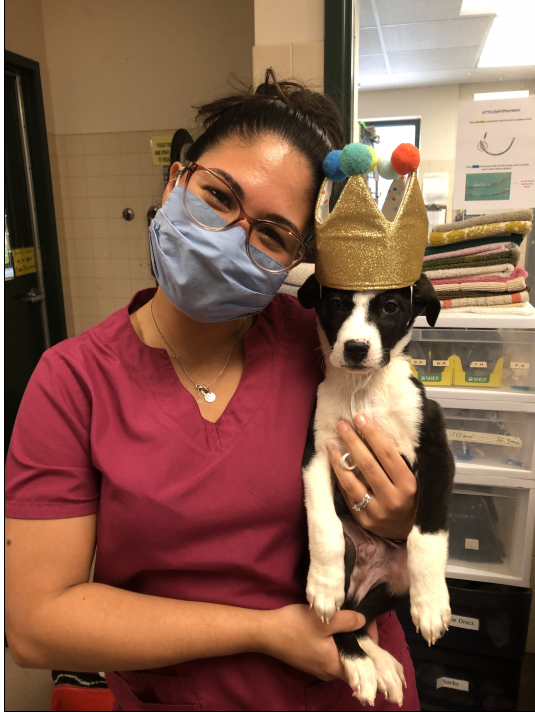
We can’t know how Chase contracted parvo, but once he and the other transfer dogs were in our care, the best we could do was follow our infectious disease protocols. Our procedures protected the rest of our animal population, and our veterinary staff treated Chase with fluids, antibiotics, and anti-nausea medications.
After more than three weeks of intense treatment, Chase was eating better and gaining weight and energy. Repeated tests for parvo came back negative – he had beaten the virus. He was made available for adoption, and just a few days later, he found his new family and went home.
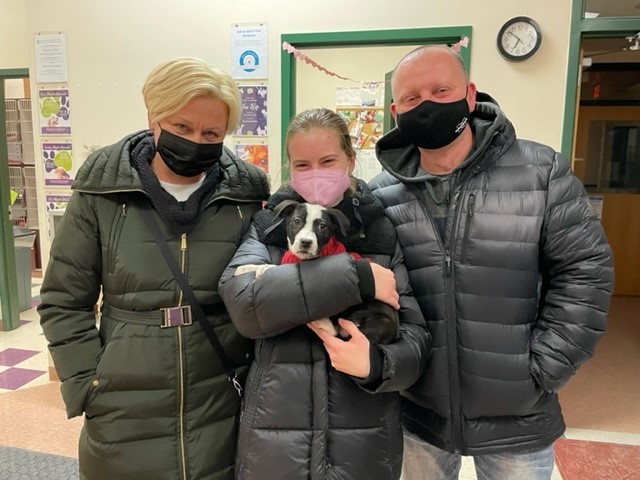
Chase managed to beat the often-fatal parvovirus, but not every dog is so lucky. There’s only one surefire way to protect our beloved pets from this disease: vaccines.
“The good news about parvovirus is that our vaccines are very effective at preventing disease,” says Uri. “These vaccines save dogs’ lives.”
